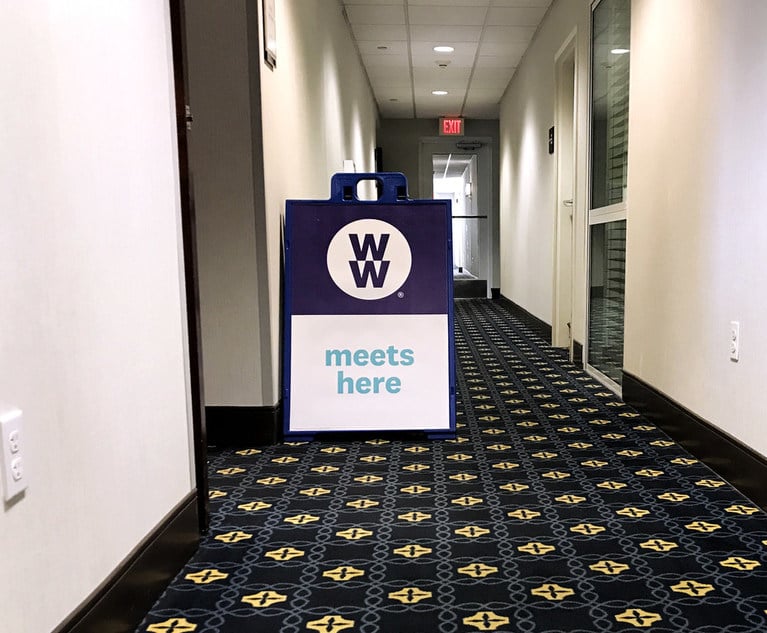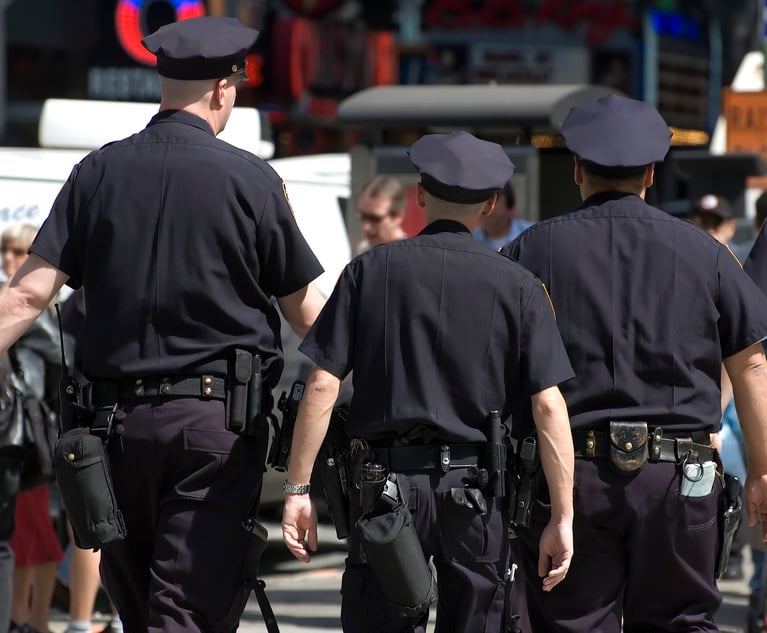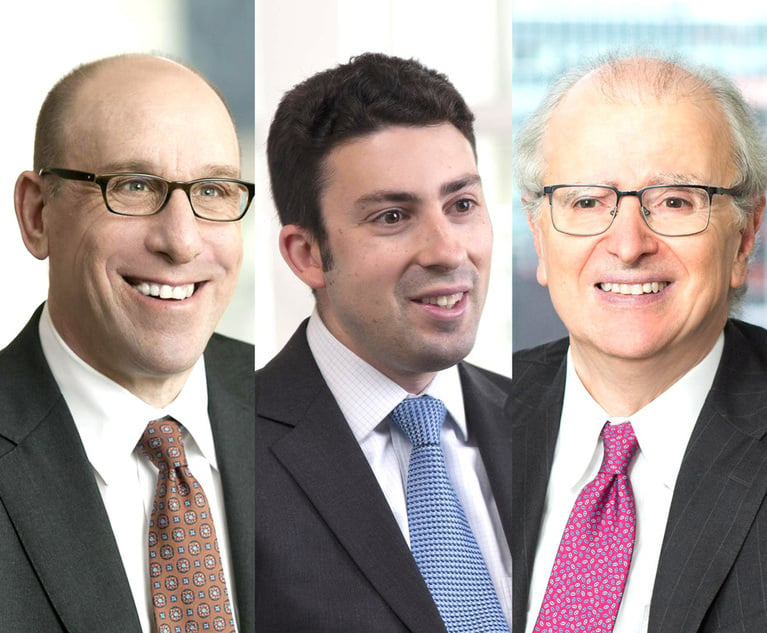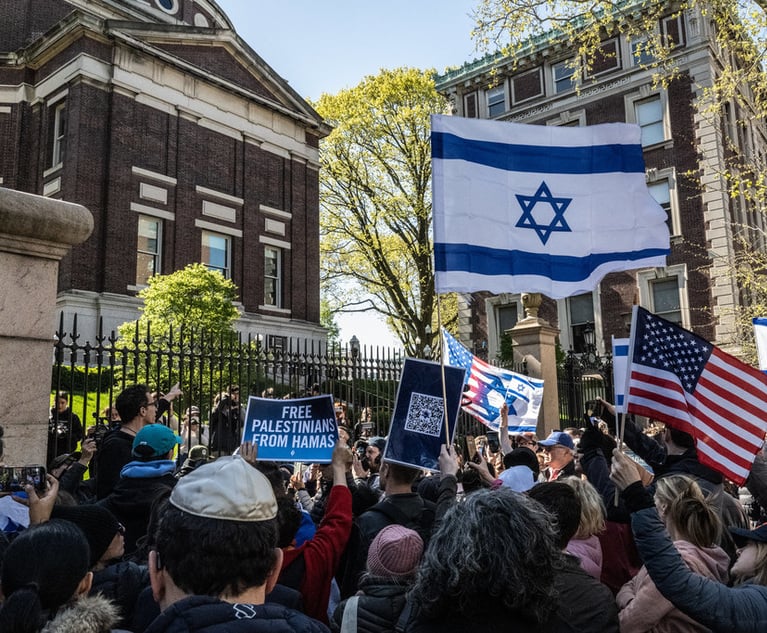New York City attorneys sought to maintain continuity for their clients Monday as the effects of COVID-19 brought tremendous uncertainty and change to virtually every facet of society, including the city’s courthouses.
At 5 p.m. Monday, the state court system entered a new stage of its response to the novel coronavirus, postponing all “nonessential” functions statewide and increasing the use of video to conduct matters that could not be delayed. Some counties went further, consolidating court operations to close some courthouses altogether.
By the end of business hours Monday, all in-person arguments scheduled for this week in the state’s appellate departments had been suspended, but the Court of Appeals still planned to hold arguments Tuesday. Spokesman Gary Spencer said seating for the general public would be limited but not eliminated, and a videoconferencing system would be available for attorneys not able to reach court in person.
Adam Leitman Bailey, of the real estate firm Adam Leitman Bailey P.C., said he’s taking things one minute at a time.
He’s been reducing meetings by taking more conference calls, he said, but his firm’s attorneys were in court as usual Monday. None of their cases were adjourned on the final day before the court system’s shift to essential functions only, he said.
Bailey said the courts need to strike a balance between maintaining safety and making sure that people still have a way to seek resolution for their problems.
“It’s very important to understand that as horrible as this is … we also have to avoid having chaos and violence in the streets,” he said. “And if businesses and people do not have a place to go air their grievances, we will have chaos and violence.”
That goal can be accomplished online, Bailey said, through remote filing and Skype or other video services. But not all of New York’s courts have established that capacity yet, and Bailey said they need to switch over quickly.
Manhattan-based criminal defense attorney Mark Bederow said that the city’s courts are not, based on his experience, prepared to handle a normal caseload remotely.
He said he assumes that’s why the system is postponing all but essential matters, and for safety reasons, he’s hoping the courthouses will close for all but “absolute emergency situations.”
“This is uncharted territory,” he said. “Even after 9/11 and things like that where there was lots of uncertainty and craziness, nobody’s ever seen anything where—it feels like for the next several weeks and possibly couple of months that there’s just very little happening. I mean across the board, there’s nowhere to eat … everyone’s afraid of getting people sick or getting sick.”
People who are incarcerated are likely to suffer the most, Bederow said, and he wasn’t sure of the solution.
“They certainly have a right to a speedy trial and all that goes with that, but it’s weighed against public safety for everyone,” he said. “Something has to give.”
Julie Rendelman, another Manhattan-based criminal defense lawyer, said she was in triage mode Monday, helping clients who were in particularly vulnerable positions due to the crisis and making sure they felt safe, despite the uncertainty.
Even though the courts’ shift to essential functions only became official at the end of the day Monday, Rendelman said she postponed all her clients’ Monday appearances for safety reasons and met no difficulty in doing so.
Bederow and Rendelman each said they anticipate fewer arrests in the near term. But as the crisis continues, Rendelman said she believes arrests will rise.
“If people are not able to work, they’re not able to support themselves, we’re going to see, I think, an eventual increase [in arrests] potentially, if people are not able to provide for their families … it’s just inevitable,” she said.
Bederow said he expects the weeks and months after the crisis to be “hectic” as the courts try to catch up on all the delayed matters, along with handling the schedule already set for summer.
Bailey said he and his colleagues are deeply worried for the health of their families and clients and also about the crisis’ economic effects.
“We realize [attorneys] are the leaders, we are the helpers, we need to help navigate everyone through this crisis,” he said. “We need to help keep businesses going to improve chances of a recovery.”
NOT FOR REPRINT
© 2024 ALM Global, LLC, All Rights Reserved. Request academic re-use from www.copyright.com. All other uses, submit a request to [email protected]. For more information visit Asset & Logo Licensing.


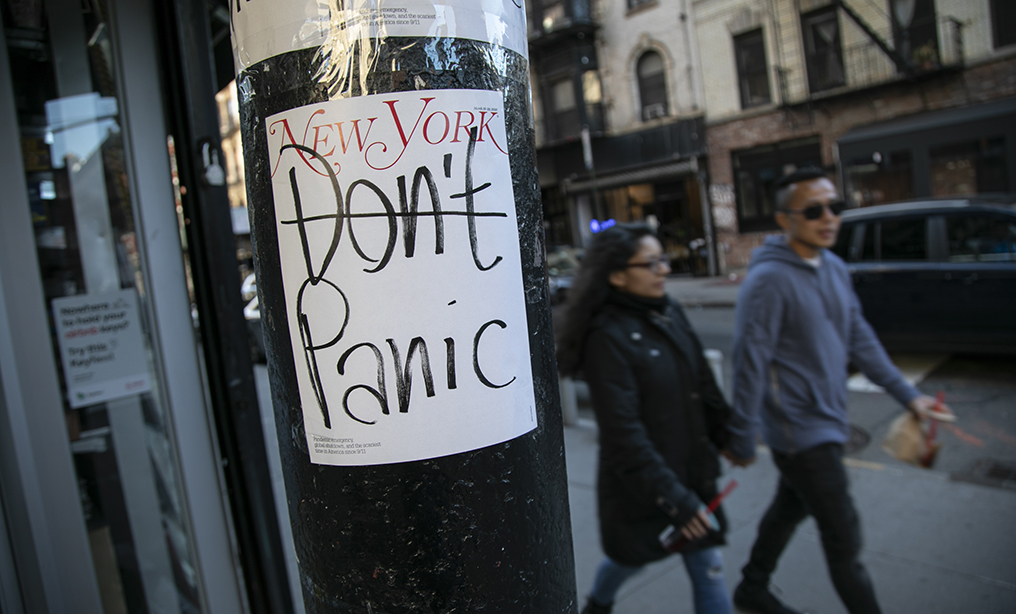 People walk past a pillar with the latest cover of the New York Magazine stuck on it, on Sunday, March 15. Photo: Wong Maye-E/AP
People walk past a pillar with the latest cover of the New York Magazine stuck on it, on Sunday, March 15. Photo: Wong Maye-E/AP

